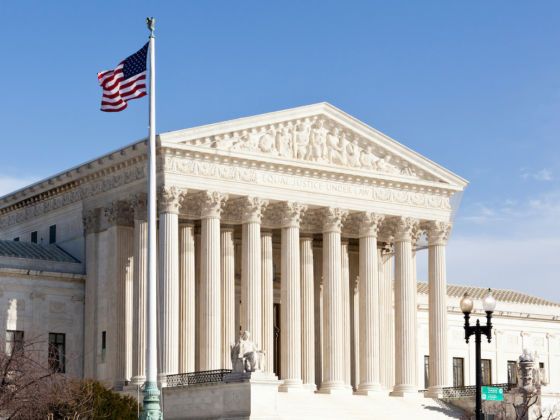In case you missed it–which is entirely possible, given that mainstream media made a quick mention of it and moved on to the next big thing–the US Supreme Court handed down an alarming ruling in a critical case last week concerning the role of corporate America’s influence in American politics.

5 Reasons Why Last Week's Supreme Court Decision Means The End of Democracy As We Know It
In brief, the justices ruled in a 5-4 decision that the US government can neither prohibit nor control corporations’ political spending in elections. In a rather astonishing leap of (il)logic, the majority decision stated that spending is a form of speech, and as such, spending can’t be controlled by the government because imposing controls would be a violation of the First Amendment.
Well, money does talk, but as Justice John Stephens expressed in his 90-page dissenting opinion, corporate speech (made possible by deep pockets) and the speech of individual Americans aren’t exactly equivalent.
With this in mind, we argue there are at least five reasons why last week’s Supreme Court decision means the end of democracy as we know it:
1. Because it’s an alarming precedent for illogical judicial analysis.
The judicial branch of federal government plays a crucial role in Americans’ lives.
It affects our education, our relationships, and our bodies.
It’s precisely because it’s so powerful that Americans depend upon its decisions to be rooted in the most thoughtful and careful analysis of the law possible.
And in this decision, such analysis was absent.
As MatadorTrips co-editor Hal Amen observed, “I don’t believe relaxing campaign spending restrictions has anything to do with free speech.”
The fact that the Court made a case otherwise sets an alarming precedent for this Court with respect to its ability to analyze legal matters logically.
2. Because it shows just how pervasive the corporatocracy is…
Corporate lobbyists already exert almost unimaginable influence over politics, law, and daily life in the United States.
They determine everything from what kids eat for lunch in public school cafeterias to what warnings the EPA can compel manufacturers to attach to their products.
And corporate interests have long shaped our foreign policy, from Latin America to the Middle East.
Do we really need more of their meddling? Do they really need any more power?
3. and emboldens them even more.
If you thought the arrogance of corporate America had reached unsurpassable heights (see AIG and big banks’ bonus fiascos), then just wait. Corporate America just got a big blank check, signed by the Supreme Court.
4. Because it further exposes the hypocrisy of American “democracy” to the rest of the world.
As we continue our world tour for democracy, claiming that we’re going to liberate “oppressed” countries from their self-interested “dictators,” we might want to take a minute to reformulate our elevator speech, because the jig is up: the self-interested party is corporate America.
5. Because it means that the little guy just got even smaller.
It used to be that anyone who met the requirements of office could aspire to public service through politics. Exhibit A? Jimmy Carter.
This was a hallmark of American politics.
No longer.
Unless you’re a friend of big business, forget your political aspirations.
Community Connection:
What’s your opinion of the Supreme Court’s decision in Citizens United v. Federal Election Commission, No. 08-205? Share your thoughts in the comments.